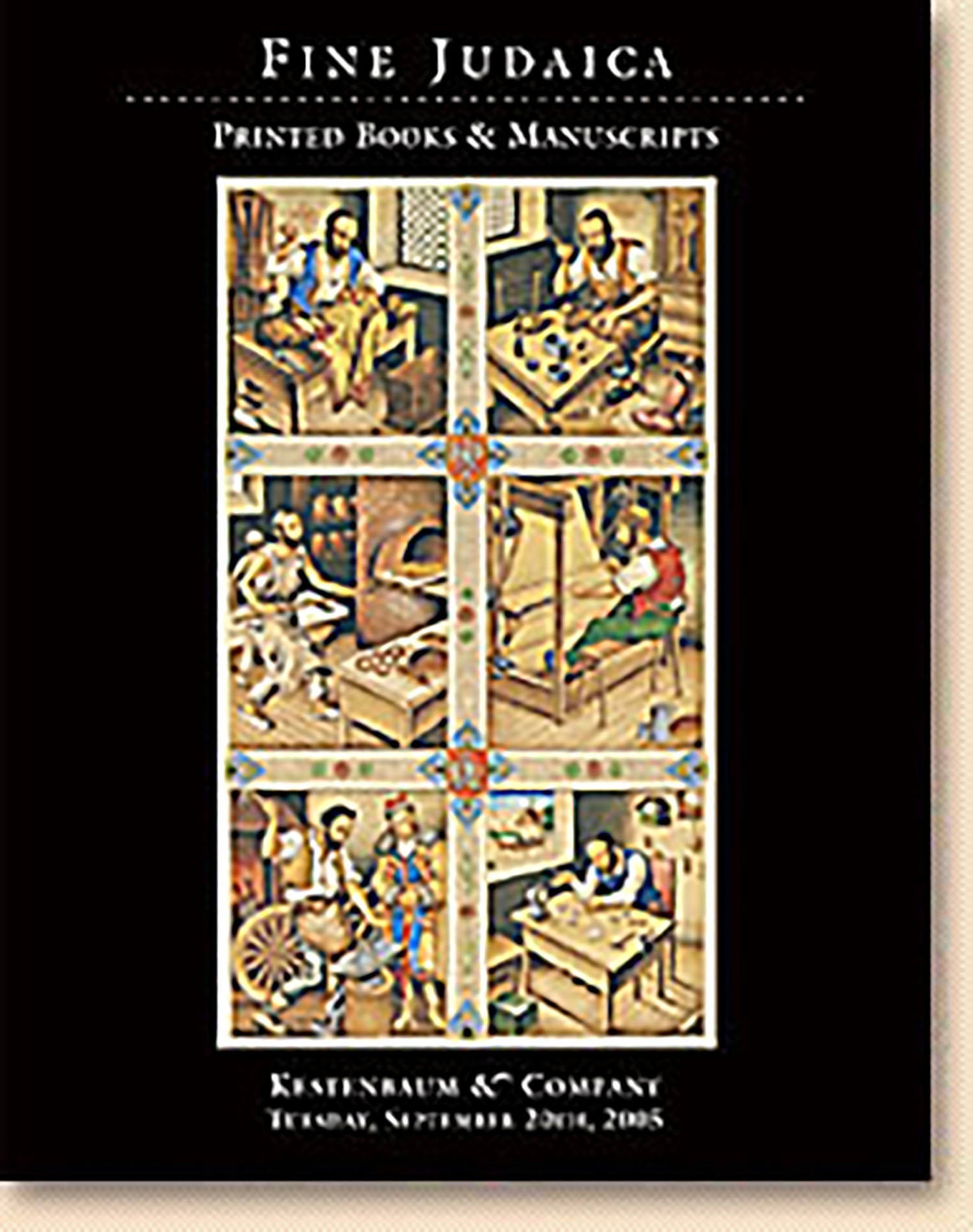Gesänge zum Gebrauche beim Gottesdienst der Reform-Gemeinde “Keneseth Israel.”

AUCTION 30 |
Tuesday, September 20th,
2005 at 1:00
Fine Judaica: Books and Manuscripts
Lot 39
(AMERICAN JUDAICA).
Gesänge zum Gebrauche beim Gottesdienst der Reform-Gemeinde “Keneseth Israel.”
Philadelphia: 1856
Est: $3,000 - $4,000
PRICE REALIZED $4,250
This hymnal was published for Keneseth Israel of Philadelphia. Established in 1847, it was one of the first Congregations in the country to incorporate Reform practices, and the first in Philadelphia to do so. Gesänge contains German-language hymns, as Keneseth Israel was founded by German immigrants and German had been the official language of the Congregation from its inception. (English was not introduced into the service until four decades later.) It was only natural to augment the liturgy with this hymnal, as “hymnals and songsters … particularly in the early phases of Reform … played a major role in the reformed worship services” (J. Petuchowski, Prayerbook Reform in Europe, 2). At this early stage of the development of the Reform movement in America, few liturgical resources were available to its adherents. Each congregation fashioned a liturgy uniquely suited for its particular needs. The first Reform prayer books began to appear in the 1850s and Keneseth Israel’s Gesänge was one of the earliest hymnals published in the country.
Keneseth Israel was guided in its shift to Reform by Rev. Louis Naumburg (1813-1902), an immigrant from Bavaria who served as the hazzan and teacher for a decade beginning in 1850. It was during his tenure that German hymns were introduced into the service and it is likely that Gesänge was the product of his pen. He later published a metrical German translation of Proverbs and a Hebrew reader.
.
On Keneseth Israel, see Kerry Olitzky, The American Synagogue, 310-1; Henry Samuel Morais, The Jews of Philadelphia, 89-98. On Naumburg, who later served as a cantor in Pittsburg and died in New York, see JE.
